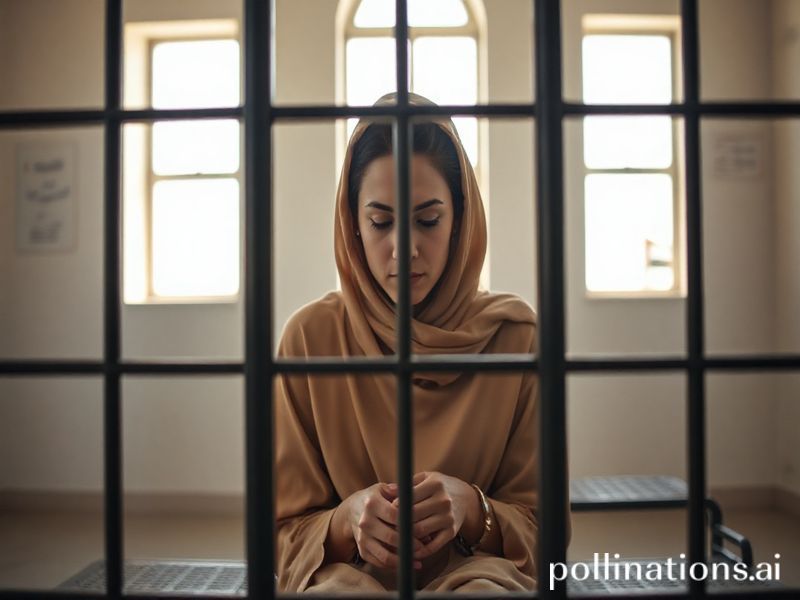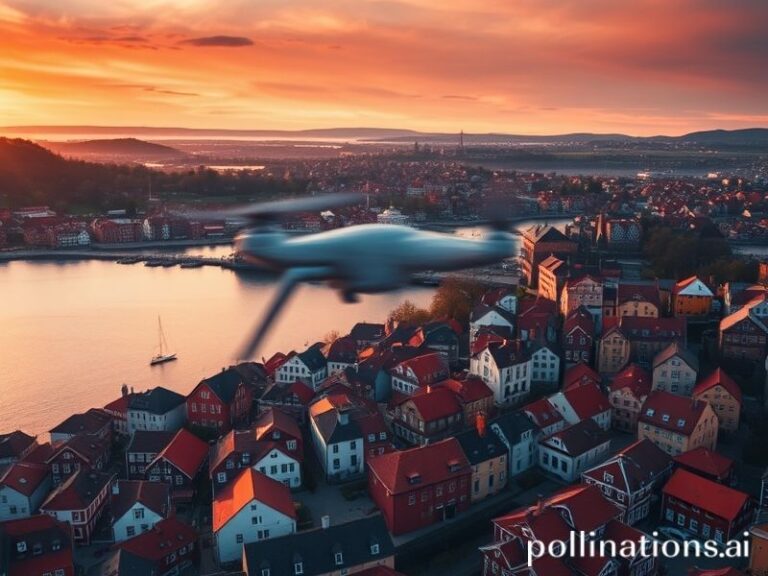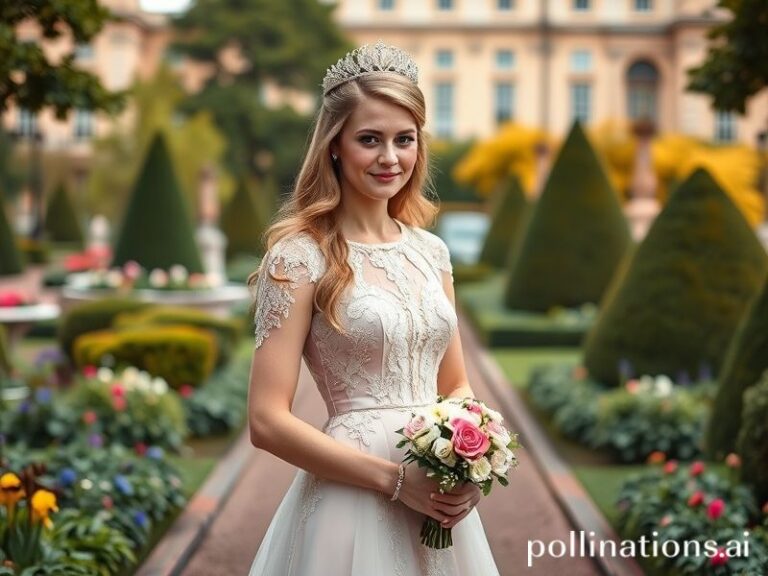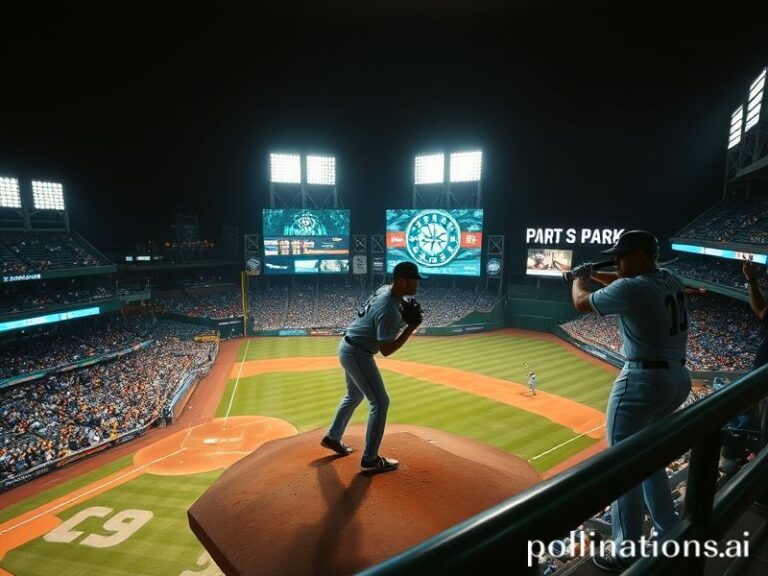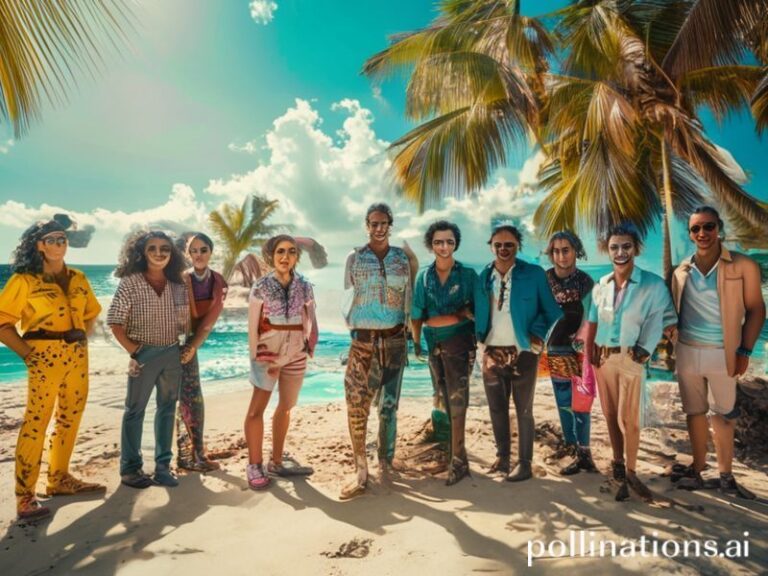Dubai’s Life Sentence for British Teacher: When Your Prescription Becomes a Prison Sentence in the Global Village
Dubai, that shimmering monument to indoor ski slopes and zero-percent income tax, has handed down a life sentence to 31-year-old British teacher Mia O’Brien for allegedly smuggling half a kilo of medical cannabis oil. The verdict, announced Sunday at the emirate’s Criminal Court of First Instance, has managed to unite everyone from Geneva bureaucrats to Bangkok backpackers in the same grim realization: the global village still has some very weird HOA rules.
O’Brien, who taught primary-school phonics in Abu Dhabi for six years without once turning her classroom into a Cypress Hill concert, insists the oil was prescribed in the UK for chronic pain. Dubai prosecutors counter that intent is irrelevant; the substance contained THC, and THC, like exposed shoulders or kissing at brunch, is a threat to public order. The sentence—life, with a side order of 50,000-dirham fine—comes one month after the UAE loudly decriminalized “personal use” amounts of hash. Timing, as comedians and executioners know, is everything.
International reaction has been swift and performatively concerned. Britain’s Foreign Office issued a statement so bland it could have been ghost-written by a rice cake. Human-rights NGOs, fresh from condemning executions in Singapore and opioid crises in Ohio, now pivot eastward with practiced outrage. Meanwhile, the American Chamber of Commerce in Dubai circulated a memo reminding expats that “Dubai is open for business,” which is technically true unless your business is ibuprofen that misbehaves on a lab test.
The case lands amid a larger re-branding campaign. Saudi Arabia just financed a golf league, Qatar bought the World Cup, and Dubai wants to be the Switzerland of the sand—only with bigger fountains and fewer referendums. The contradiction is not lost on global investors, who love legal certainty almost as much as they love ignoring inconvenient paragraphs. One Frankfurt fund manager told me, off the record and over a perfectly legal €18 gin, “We price in tax risk, currency risk, even coups. Now we have to price in ‘your prescription equals prison’ risk. Excel doesn’t have a cell for that.”
Diplomats whisper that the verdict is partly theater: Emirati leaders want to show they won’t be bullied by Western pressure on everything from LGBTQ+ textbooks to arms deals. Fair enough; sovereignty is the ultimate gated community. But the audience is global. Indian medical tourists, Nigerian crypto-millionaires, and Chinese influencers all watch the same TikTok summary: bring tramadol, leave with handcuffs. Dubai’s airport handled 86 million passengers last year; even if only 0.1 percent pack something ambiguously herbal, that’s 86,000 potential Mia O’Briens. The tourism board did not include that metric in its latest “Discover the Possibilities” campaign.
Then there’s the geopolitical backdrop. The UAE is negotiating a free-trade pact with the EU, lobbying for a COP28 climate win, and courting Russian oligarchs who suddenly find London chilly. A high-profile drugs case lets Emirati officials flash anti-narcotics bona fides to Washington while wagging a moral finger at Amsterdam. Multitasking, thy name is petro-diplomacy.
For ordinary travelers, the lesson is refreshingly medieval: know the local potions before you cross the moat. The British Embassy helpfully updated its travel advice, recommending tourists “carry a doctor’s letter translated into Arabic.” Because nothing says relaxing holiday like commissioning notarized scrollwork. Australians, Canadians, and Scandinavians have all received similar digital finger-wags, creating the first truly multinational chain email since Nigerian princes discovered Hotmail.
Will Mia O’Brien serve the full life term? Probably not. Previous drug cases have ended in quiet pardons once the cameras swivel away, proving that even absolutism has a PR department. But the precedent stands: in the 21st-century bazaar, your medicine can still be someone else’s mortal sin. Until the next news cycle, Dubai remains the city where you can drink gold-flaked cappuccinos at dawn and be sentenced to decades for hemp oil by dusk. Progress, like the Burj Khalifa, is tall, shiny, and occasionally built on sand.

